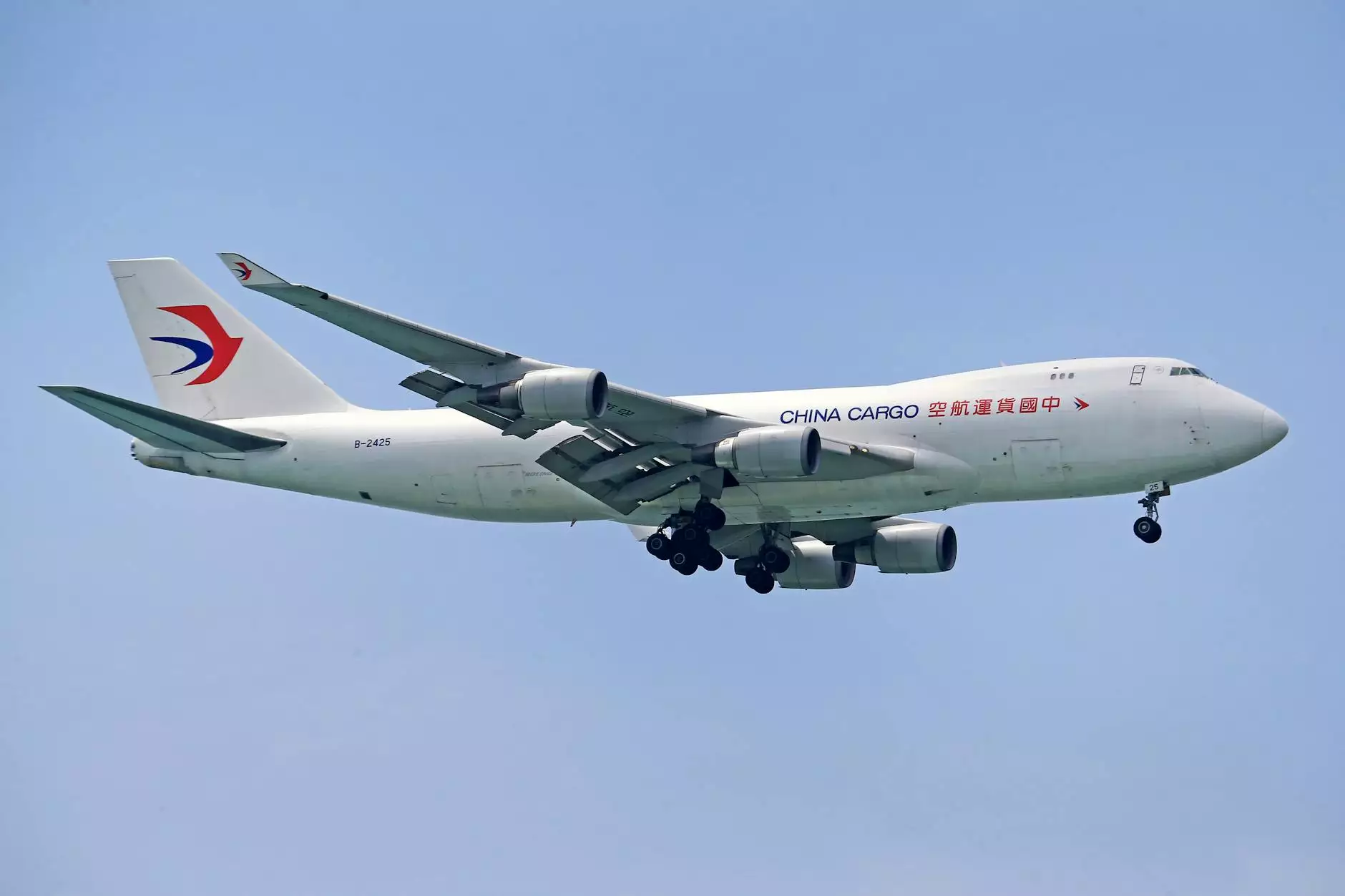Maximizing Efficiency and Cost-Effectiveness in Air Freight Logistics with Cargobooking.aero

In the dynamic world of global commerce, air freight remains a vital component of supply chain management, offering speed, reliability, and global reach. Businesses seeking to optimize their logistics must understand the intricacies of air freight costs per kg, leverage advanced transportation strategies, and utilize top-tier services at airports and shipping centers. Cargobooking.aero emerges as a leader in providing comprehensive air freight solutions designed to meet the demands of modern industries while ensuring cost efficiency and operational excellence.
Understanding the Significance of Air Freight Costs per kg in Modern Business
One of the most crucial metrics for evaluating air cargo pricing is the air freight costs per kg. This measure directly impacts the profitability of shipments, influencing quotes, budgeting, and overall supply chain strategies. As global markets expand and consumer expectations rise, understanding how these costs fluctuate and what factors influence them becomes essential for businesses aiming for competitive advantage.
Factors Influencing Air Freight Costs per kg
- Fuel prices: Fluctuations in aviation fuel significantly affect operational costs, directly impacting freight rates.
- Distance and route: Longer routes or less direct paths typically increase costs per kg due to fuel and time considerations.
- Weight and volume: Oversized or dense shipments often incur higher costs because of handling complexities and capacity limitations.
- Airline and carrier policies: Different carriers may offer varied pricing structures based on fleet efficiency, service level, and contractual agreements.
- Market demand: Peak seasons or high-demand periods can cause rate surges, impacting costs across industries.
- Customs and regulatory fees: Import/export tariffs, security charges, and compliance costs also influence overall freight pricing.
Strategies to Optimize Air Freight Costs per kg with Cargobooking.aero
Optimizing air freight costs per kg is not solely about finding the cheapest rates; it involves strategic planning, reliable partnerships, and leveraging innovative logistics solutions. Cargobooking.aero offers a suite of tools and services tailored to help businesses achieve cost efficiency in their air freight operations.
1. Advanced Route Optimization and Carrier Selection
Using cutting-edge algorithms and data analytics, Cargobooking.aero assists clients in selecting optimal routes that balance cost and transit time. Efficient route planning minimizes unnecessary fuel consumption and reduces air freight costs per kg. Additionally, choosing the right carrier aligned with your shipment profile can lead to substantial savings.
2. Flexible Scheduling and Inventory Management
Understanding peak and off-peak periods allows for flexible scheduling, which can significantly reduce costs. Cargobooking.aero provides real-time tracking and predictive analytics to help businesses adjust their logistics schedules proactively, avoiding rush fees and last-minute surcharges.
3. Consolidation and Shipment Packaging Optimization
Consolidating smaller shipments into larger, well-packed loads decreases the cost per kg by spreading fixed handling and transportation charges across higher weight and volume. Expert packing strategies also ensure maximum space utilization, reducing the need for additional freight space.
4. Leveraging Technology for Transparent Pricing
With Cargobooking.aero’s innovative digital platform, clients gain access to instant quotations, transparent cost breakdowns, and real-time updates. This transparency enables informed decision-making, allowing businesses to compare carriers and choose the most cost-effective options based on accurate, up-to-date data.
The Role of Shipping Centers and Transportation Infrastructure in Cost Management
Efficient shipping centers and robust transportation infrastructure are foundational to controlling air freight costs. The proximity of these centers to major airports, DHL hubs, and regional distribution points can dramatically influence transit times and expenses.
Importance of Strategic Shipping Centers
Optimal placement of shipping and sorting facilities reduces transit distances and minimizes handling times, leading to lower air freight costs per kg. Modern shipping centers equipped with advanced automation and warehousing technologies streamline logistical operations and reduce labor costs.
Integration with Seamless Transportation Networks
Efficient ground transportation from shipping centers to airports is crucial. Partnering with reliable trucking and rail freight providers ensures timely pickups and deliveries, which maintain steady supply flows and prevent costly delays.
Airports as Critical Hubs for Cost-Effective Air Freight Operations
Major airports serve as pivotal hubs that can influence freight costs significantly. Factors such as airport logistics, customs clearance efficiency, and available infrastructure impact the overall cost structure.
Choosing the Right Airport for Your Cargo
Strategically selecting airports that offer expedited customs processing, ample cargo space, and close proximity to transportation hubs can reduce transit times and expenses. Many airports also provide dedicated cargo terminals optimized for high-volume shipments, further lowering air freight costs per kg.
Leveraging Airport Infrastructure for Cost Savings
Investing in relationships with airport authorities and utilizing value-added services like warehousing, packaging, and customs brokerage can optimize the entire shipping process. Cargobooking.aero's platform facilitates seamless coordination with airport logistics providers to ensure smooth operations.
Future Trends in Air Freight Costs and Logistics Optimization
The landscape of air freight is continuously evolving, driven by technological advancements, sustainability initiatives, and changing market dynamics. Staying ahead of these trends enables businesses to manage air freight costs per kg effectively.
1. Adoption of Digital and Automated Technologies
Automation in booking, tracking, and customs clearance reduces administrative costs and minimizes human error, leading to lower overall expenses.
2. Focus on Sustainability and Green Logistics
Green initiatives, such as investing in fuel-efficient aircraft and sustainable packaging, may initially incur costs but often result in long-term savings through efficiency gains and compliance with regulations.
3. Integration of Artificial Intelligence and Data Analytics
AI-driven forecasting and route optimization tools allow for proactive adjustments, better resource allocation, and cost reductions in real-time.
Why Choose Cargobooking.aero for Your Air Freight Needs?
Cargobooking.aero distinguishes itself by offering an integrated, user-friendly platform that empowers businesses to navigate complex air freight logistics confidently. With a vast network of airline partners, state-of-the-art technology, and comprehensive support services, we aim to:
- Reduceair freight costs per kg through strategic route and carrier selection.
- Enhance transparency and control over shipments with real-time tracking and instant quotations.
- Deliver tailored logistics solutions aligned with your specific business needs.
- Ensure compliance and smooth customs clearance at key airport hubs worldwide.
- Enable your business to scale efficiently with flexible, reliable transportation options.
Conclusion: Taking Your Air Freight Strategy to the Next Level
Optimizing air freight costs per kg requires a comprehensive understanding of market dynamics, strategic planning, and leveraging advanced technological tools. Cargobooking.aero provides the expertise, network, and platform necessary to elevate your logistics operations, ensuring cost savings, operational efficiency, and competitive advantage in the fast-paced global marketplace. By embracing innovative solutions and maintaining flexibility, your business can navigate the complexities of air freight with confidence and precision.
Investing in intelligent freight management, strategic airport and shipping center partnerships, and continual adaptation to industry trends will position your enterprise for long-term success in the realm of air cargo logistics.









